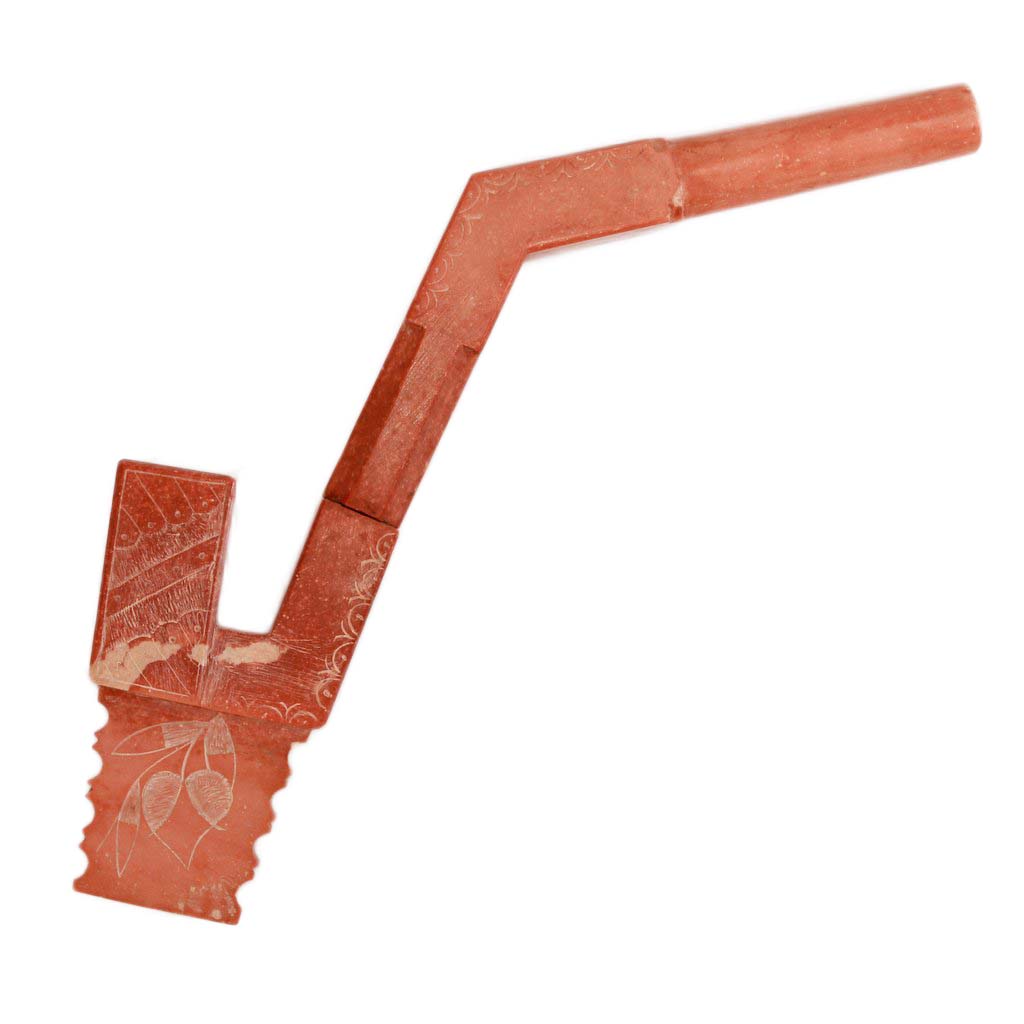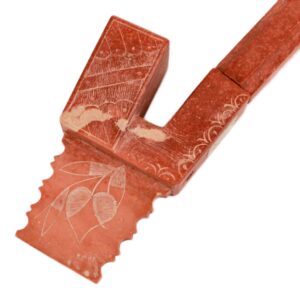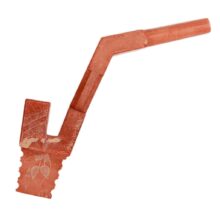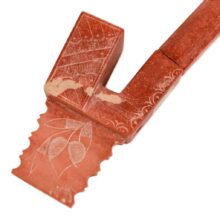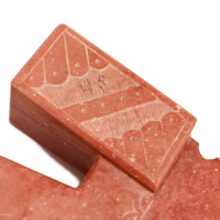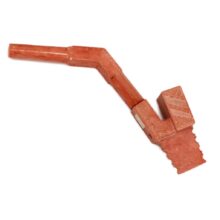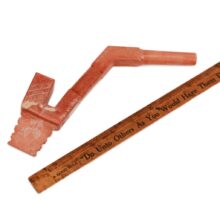Loading cart contents...
Solid: Catlinite Pipe
Catlinite pipe / hand-carved pipestone / Native American, Plains / Minnesota / c. 1870s
Catlinite, also called pipestone, is a brownish-red stone prized by Plains nations Native Americans for use in the carving of ceremonial pipes. The term “Catlinite” came into use after 1836, when George Catlin “discovered” the Minnesota pipestone quarries which had been in use by Native Americans for 3,000 years. American settlers and Native Americans shared the quarry until the mid-19th century, when white settlers seized control. They began to manufacture pipes as souvenirs and, in a cruel irony, to trade with Native Americans. Meanwhile, the Plains Native Americans who had quarried pipestone for millennia were forced from their ancestral lands onto reservations in the west. The Yanktons — a subgroup of the Dakota tribe — won a modicum of justice for the theft in 1928 when the Supreme Court awarded them compensation from the United States government.
This nineteenth century pipe was either carved by a Native American for the white tourist market or by a white settler to barter with Native Americans for furs. Though its skillful creator is unknown, the pipe embodies the contradictions and conflicts inherent to Catlinite, combining elements of Native American design with Victorian stylistic motifs from mass-produced articles. Do not be fooled by its beauty: the ugly hand of Manifest Destiny carved this handsome pipe, which gives shape to the complexities of American history as few objects can.
Includes custom stand.
Measurements
8 inches tall
5 inches wide
Condition
Good antique condition.
Shipping
Free in the continental United States. If an international buyer, please contact me for a shipping estimate by clicking here.
